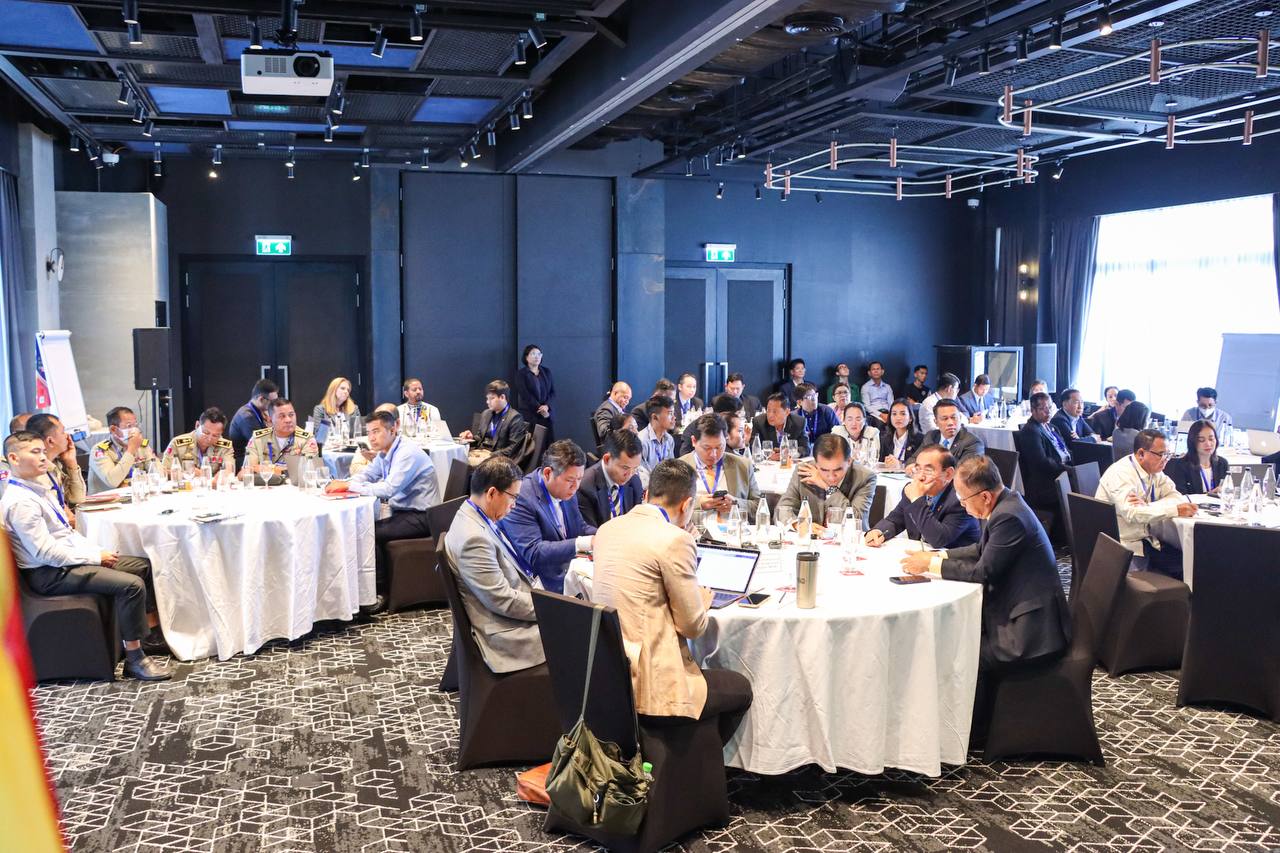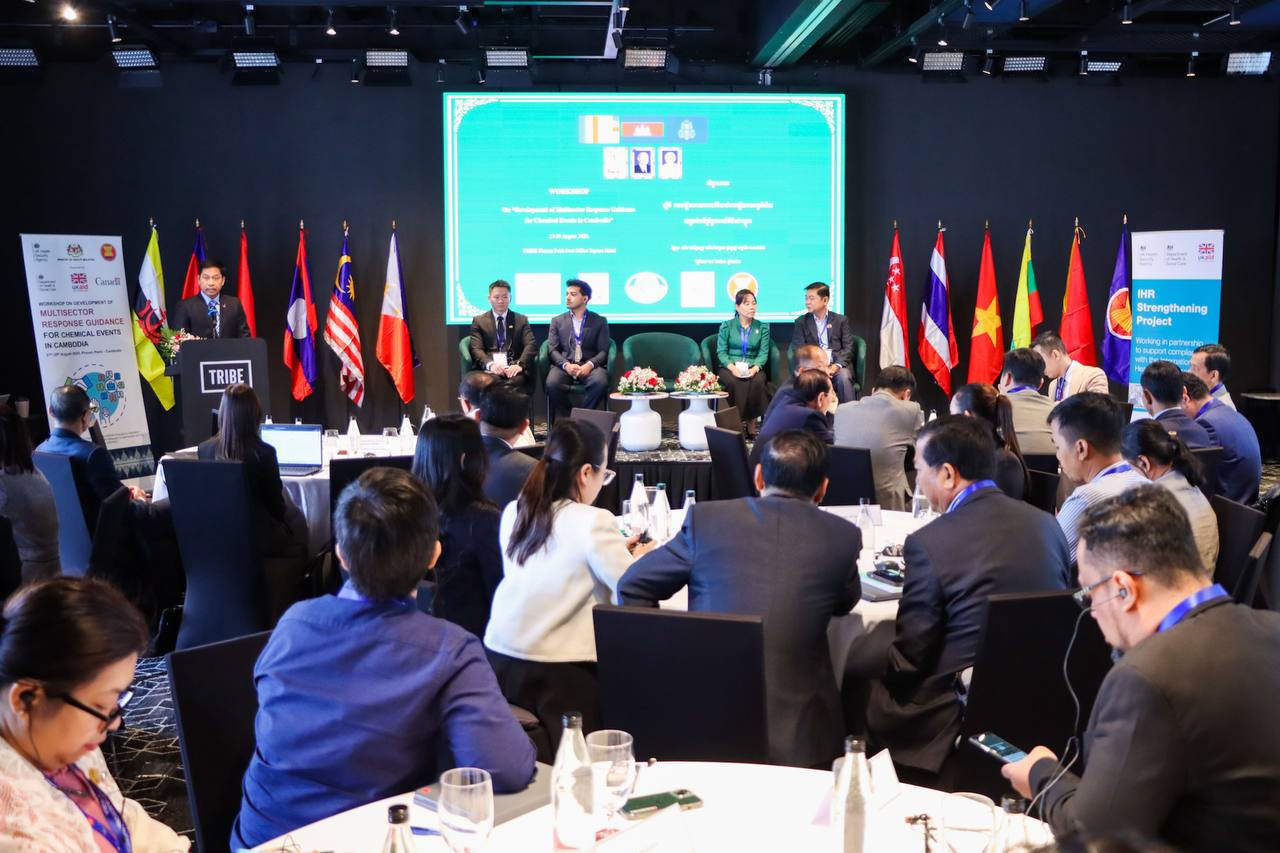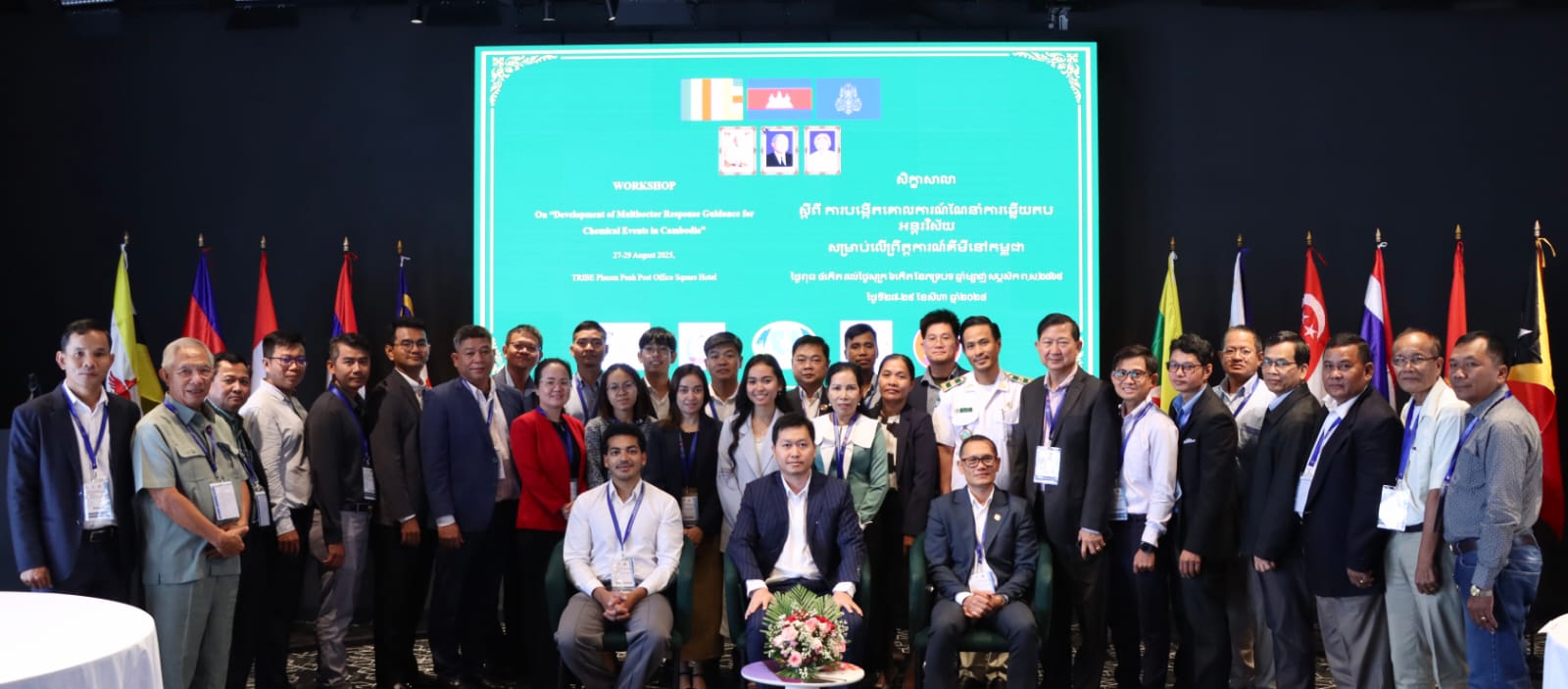
The UKHSA International Health Regulations Strengthening Project’s (IHR-SP) Indo-Pacific Team, in collaboration with ASEAN Emergency Operations Centre Network (AEOCN), co-delivered a workshop to better understand ways of working in Cambodia in order to develop multisector guidance for response to chemical events. This initiative responded to a formal request from Cambodia’s Ministry of Health (MOH), who co-hosted the workshop alongside the National Authority for the Prohibition of Chemical, Nuclear, Biological and Radiological Weapons (NACW), who authored the CBRN National Action Plan for Cambodia.
The workshop was attended by 38 representatives from twelve key multi-sector institutions including, the:
- Ministry of Economy and Finance (MEF)
- Ministry of Environment (MOE)
- MOH
- Ministry of Industry, Science, Technology and Innovation (MISTI)
- Ministry of Information (MOInfo)
- Ministry of Interior (MOInt)
- Ministry of Labour and Vocational Training (MLVT)
- Ministry of Mines and Energy (MME)
- Ministry of Public Works and Transport (MPWT)
- Ministry of Women’s Affairs (MOWA).
- NACW, and
- National Committee for Disaster Management (NCDM).
Each organisation presented on their roles and responsibilities in responding to, or coordinating a response to, chemical events. This cross-sectoral participation provided a comprehensive overview of Cambodia’s existing response architecture and procedures.
Simulating response mechanisms
The second day of the workshop used structured scenario-based exercises to examine how organisations may collaborate to respond to different chemical events. These scenarios included: (1) an explosion at a major port, (2) an illegal dumping of chemicals in an urban river, and (3) a minor warehouse spill in a rural area.
The discussion provided valuable insights into current government ways of working and communications protocols. This structured approach enabled participants to examine practical challenges and the opportunity to clarify identified or expected roles during emergency response that could be addressed in the development of the guidance.
Images above: the workshop underway
Regional knowledge exchange
Throughout the event, facilitators and technical experts from the UKHSA Chemicals and Poisons team, the IHR-SP Ethiopia Chemicals Technical Advisor, AEOCN, MOH Malaysia, and EU Centres of Excellence (EU CoE) Regional Team shared knowledge and experience with participants. Additionally, representatives from six ASEAN Member States and Timor-Leste contributed insights from their national emergency response systems to enrich the conversation. This regional dimension proved particularly valuable, with several participating countries expressing interest in implementing similar capacity-building initiatives in their own countries.
Informing new guidance
Continuing the good collaboration with ASEAN partners, UKHSA will develop draft guidance that incorporates the information gained through the workshop. The draft will then be further developed and undergo technical review by a formal technical working group, consisting of focal points from each relevant ministry and government institution of Cambodia. The guidance development process reflects established principles of partnership and national ownership, ensuring that final recommendations are tailored to Cambodia's specific institutional context and operational requirements.
Ahmed Razavi, IHR-SP Regional Lead for the Indo-Pacific region said: “Working alongside Cambodia’s government and our ASEAN partners, we’re pleased to support this initiative to help develop guidance to protect public health and environmental safety during chemical emergencies. We're grateful for the dedication and cross-sectoral collaboration shown by all participants during this crucial workshop, showing clear commitment to protecting communities from chemical emergencies. Furthermore, the knowledge and experience generated through this process will inform broader efforts to strengthen emergency response capabilities across the region.”
Image above: participants of the workshop, co-hosted by Cambodia’s Ministry of Health (MOH) alongside the National Authority for the Prohibition of Chemical, Nuclear, Biological and Radiological Weapons (NACW).
Useful Resources
Related Articles
-
Building future successes in Ethiopia’s Chemical, Biological, Radiological and Nuclear (CBRN) Performance with collaborative Annual Review meeting
BY IHR -
Enhancing Public Health across our partner countries with Chemical Hazards online training
BY IHR -
Strengthening Ethiopia’s CBRN Surveillance and Response Capabilities through ‘training of trainer’ workshop
BY IHR -
IHR-SP partners with Nigeria CDC to strengthen chemical events responses following heavy metal poisonings
BY IHR -
Developing Nigeria’s first guidelines for chemical event surveillance: a collaborative effort with IHR-SP
BY Mari Langreiter, Allister Gittins, Nicholas Brooke, Quinta Akumefula



Please Sign in (or Register) to view further.